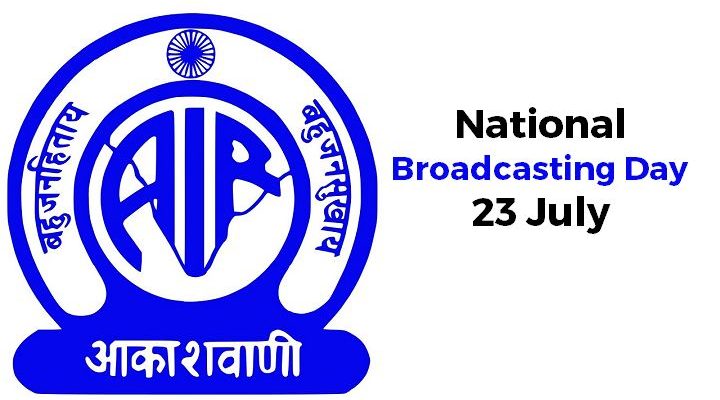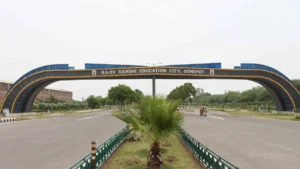On July 23rd, India commemorates National Broadcasting Day to honor the profound influence of radio in our lives. This significant day marks the inception of India’s first-ever radio broadcast, known as “All India Radio (AIR).” To celebrate this occasion, All India Radio (AIR) organized a symposium in New Delhi focused on discussing the role of broadcasting in shaping a modern India and exploring new mediums of communication.
Journey from IBC To Akashvani
- Radio broadcasting services were introduced in India during British rule in 1923 as an initiative of the Radio Club of Bombay.
- India’s first-ever radio broadcast commenced from Bombay Station under the Indian Broadcasting Company in 1927.
- On July 23, 1927, All India Radio was founded as a private company called “Indian Broadcasting Company Ltd (IBC),” and this date became the basis for celebrating National Broadcasting Day, established in 1936.
- Later, on June 8, 1936, IBC was transformed into All India Radio (AIR). In 1956, the name “Akashvani” was officially adopted for AIR, inspired by Rabindranath Tagore’s 1938 poem titled “Akashvani,” which translates to “voice or announcement from the skies.”
Significance Of National Broadcasting Day
Indian radio played a significant role in the formation of an independent India. Prior to gaining independence, Azad Hind Radio led by Netaji Subhash Chandra Bose and Congress Radio both played instrumental roles in inspiring and mobilizing Indians against British colonial rule. Furthermore, during the 1971 war, Akashvani played a crucial role in supporting Bangladesh’s liberation struggle against repressive Pakistani forces. These historical contributions highlight the immense impact of radio broadcasting in shaping the nation’s destiny. As a result, National Broadcasting Day holds immense importance as a significant occasion for our country, celebrating the power of broadcasting and its role in shaping India’s history.
History of Radio Broadcast in India
Radio broadcasting in India commenced as private initiatives in 1923 and 1924, with the establishment of radio clubs in Bombay, Calcutta, and Madras (now Chennai). However, due to financial constraints, these stations had to shut down.
Subsequently, a Broadcasting Service was introduced on an experimental basis in July 1927 in Bombay and a month later in Calcutta, through an agreement between the Government of India and a private company called the Indian Broadcasting Company Ltd.
In response to public outcry over the closure of the Indian Broadcasting Company, the Government took charge of broadcasting on April 1, 1930, renaming it the Indian State Broadcasting Service (ISBS). Initially experimental, it became permanently under government control in 1932.
A new radio station was established in Delhi in 1936. On June 8 of the same year, the Indian Broadcasting Service was rebranded as All India Radio (AIR), with a fresh signature tune. The Delhi station eventually grew into the core of national-level broadcasting.




 Which District of Haryana is known as th...
Which District of Haryana is known as th...
 Top-5 Richest Cities in India by GDP 202...
Top-5 Richest Cities in India by GDP 202...
 Most Wickets in T20 World Cup 2026: Full...
Most Wickets in T20 World Cup 2026: Full...








